As the door opens to the darkened bar, your eyes scan the room. There he is: an old friend you haven’t seen in years. You sit beside him and beckon the bartender over with a nod that says you’re ready. You both order a whiskey—one neat, one with rocks. And after you toast to years lost, you begin to evoke them one by one, sip by sip.
Like a stone dropped in a lake, each passing minute is a wake rippling outward into the water. You are creating a different future. That’s how cause and effect works, right? From the moment you say “cheers,” you don’t know where the night will take you.
Someone somewhere had the idea to distill this whiskey. Whether this person fought the law or merely tried a new charred oak barrel, the distiller is essentially the stone that creates the ripple. He distills a drink that could change a conversation—that could change the direction in which the course of a life can take. In this situation, his idea is the spark in which this all begins.
Paul Hletko, founder of FEW Spirits in Evanston, Illinois, knows cause and effect, perhaps more than most. After the passing of his grandfather in 2008, Hletko—originally an attorney—decided to change his career as a means of honoring his family’s legacy. However, rather than opening a brewery like the one his family ran prior to World War II, Hletko decided to take a different route: he would distill whiskey and gin.
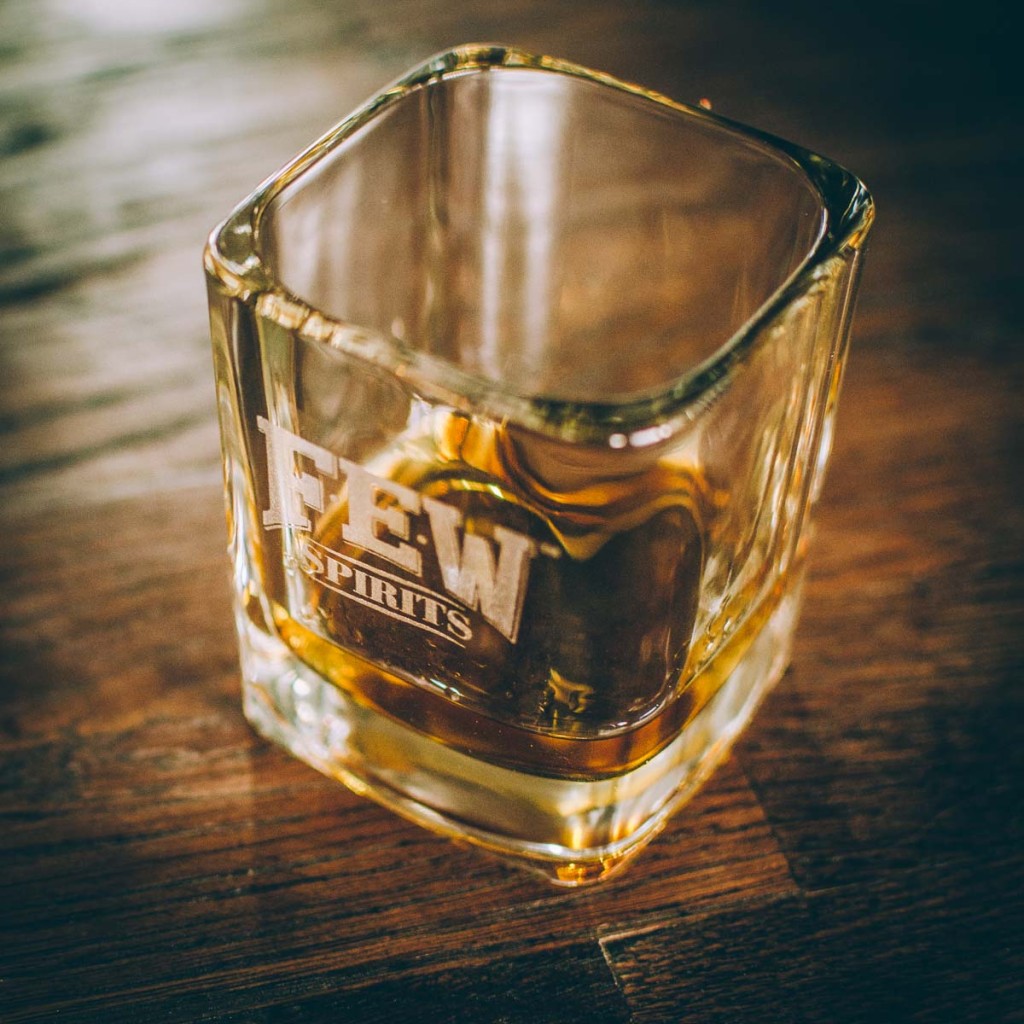
Whiskey Neat
At the end of the day when I come home from work and put the kids to bed, my favorite thing to do is pour off one—maybe two—fingers, grab a guitar, close my eyes and play.
FEW’s Bourbon Whiskey, of course.
Neat.
That’s it.
He put his legal experience to use and was instrumental in not only opening his own small-batch distillery, but also in changing and creating local liquor and zoning laws in a town considered to be the home of the temperance movement. Evanston was, after all, the home of suffragist Frances Willard, a founding member of the Woman’s Christian Temperance Union (WCTU) and the second president of the National WCTU (she held this position from 1879 until her death in 1898).
Evanston was a dry city from 1858 until 1972 when The Spot served the town’s first legal drink on June 9. And until recently, distilleries were still not legal. After countless hearings and city meetings, Hletko was able to overturn antiquated prohibition laws to open and operate FEW Spirits in 2011, Evanston’s first grain spirits distillery.
Within the first three months of operation, FEW Spirits won the Double Gold Medal at the New York Wine & Spirits Competition—the competition’s highest accolade—for their white whiskey proving that Hletko’s efforts were not in vain. He staked his claim as an entrepreneur who was not only charting new territory, but doing so exceptionally well. His rebellious spirit was never going to take “no” for an answer.
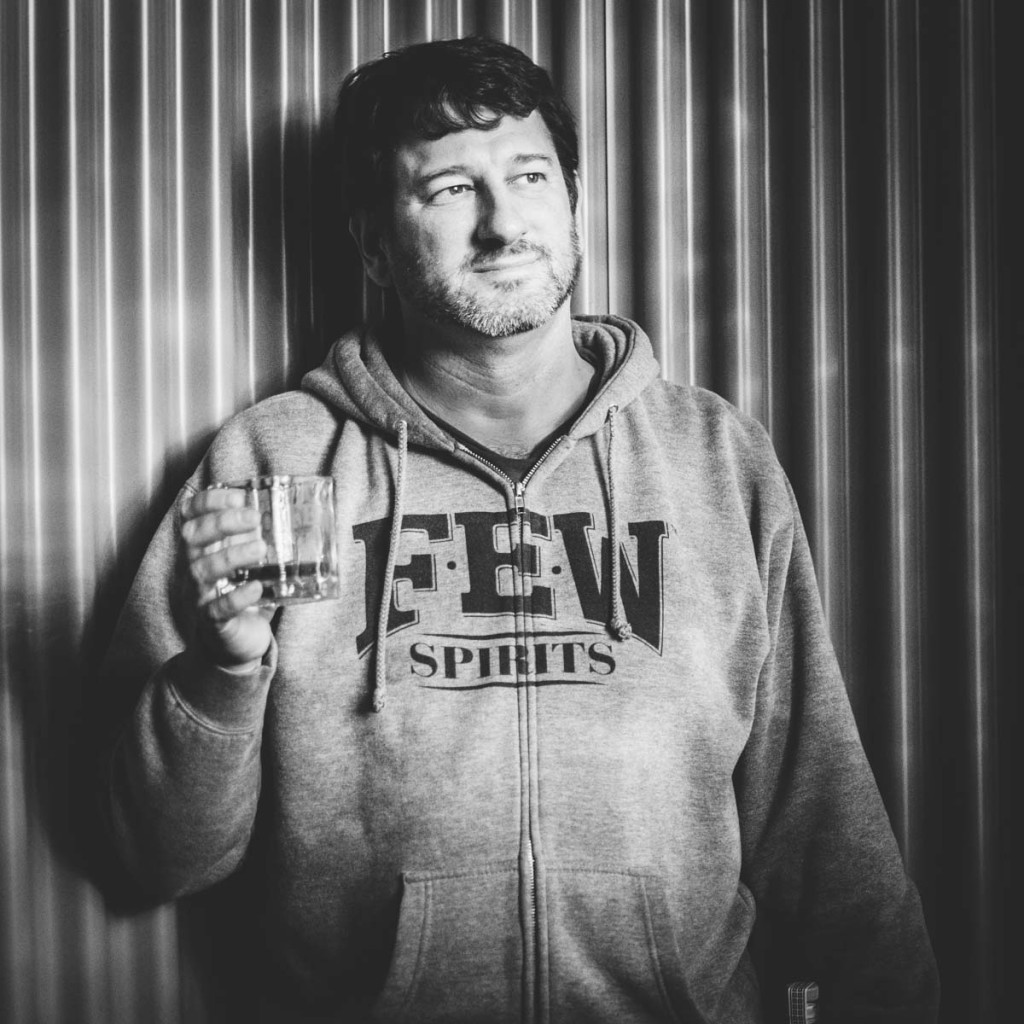
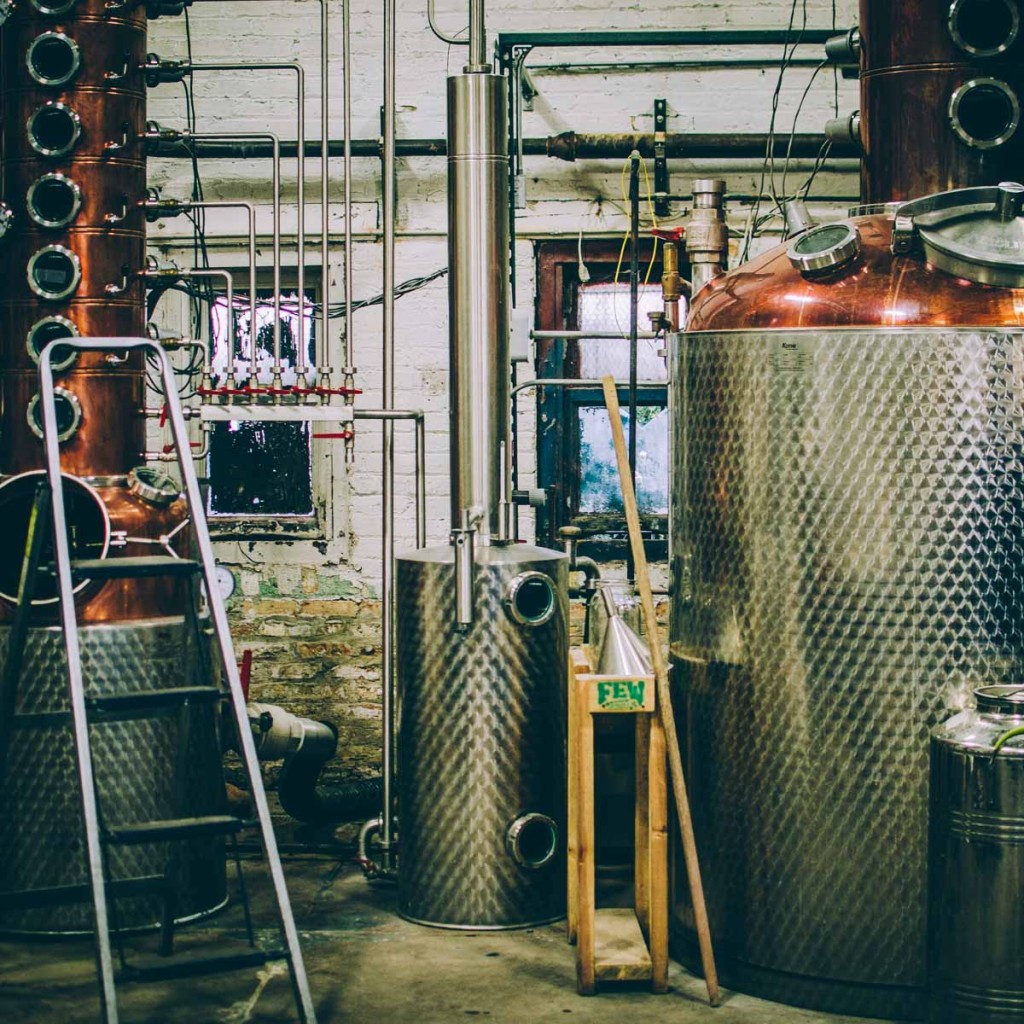
Tell me about brewing beer at home.
I spent about 20 years at home brewing beer. What really gets me excited and fired up when I wake up in the morning and when I go to bed at night is creativity. I’ve expressed that in a bunch of different ways over the years, ranging from making beer or sausage or bacon or cheese. I was a professional guitar player, I ran a record label, and I designed and built custom guitars effects pedals for a while.
I always liked making beer because it’s creative and at the end of it you have beer. Beer is more fun than bacon. Beer is more fun than anything other than pretty much whiskey.
And then my grandpa died. Before World War II his family owned a brewery in what is now the Czech Republic. That hit me. They owned the brewery, the Nazis invaded, and they lost the brewery. My grandfather survived the camps, but the rest of the family was wiped out. My grandpa spent the rest of his life trying to get it back, and he never did.
And when he died it struck me that all of this family legacy and history was all gone unless I did something about it. That was the spark that pushed me over the edge. I said, “There are a million reasons why I can’t do this. But the only reason that matters says I have to.” So I had a career change, but I didn’t have a lot of choice.
It felt like the right thing to do…
Everybody always asks me, “Was it the right thing to do?” I don’t have any idea. I get to be creative. I get to have a lot more fun. I get to illustrate for my children that they should chase their dreams too. Whether it’s a good choice or a bad choice, I don’t really know. But I know I’m happier.
Was brewing beer at home for personal fun? What kinds of beers did you try brewing?
I was just having fun. I tried a lot. Back in the day, my favorites were probably IPAs. I made a lot of pretty hoppy beers. I made reds. I made ambers and browns. Never did too much with stouts or porters. I don’t like chocolate very much, and that’s the hallmark of that style. That’s not to say I never made them; I certainly did. My preference was always something hoppy and full-bodied.
Did your grandfather open his brewery?
The family ran it. In the camps, he was a teenager. He was small enough to not be a physical threat to the guards, but old enough to be able to work. If you were big enough to be a threat you were eliminated. If you were too young to work you were eliminated. But if you were the right age and you could work in the factories, they kept you around.
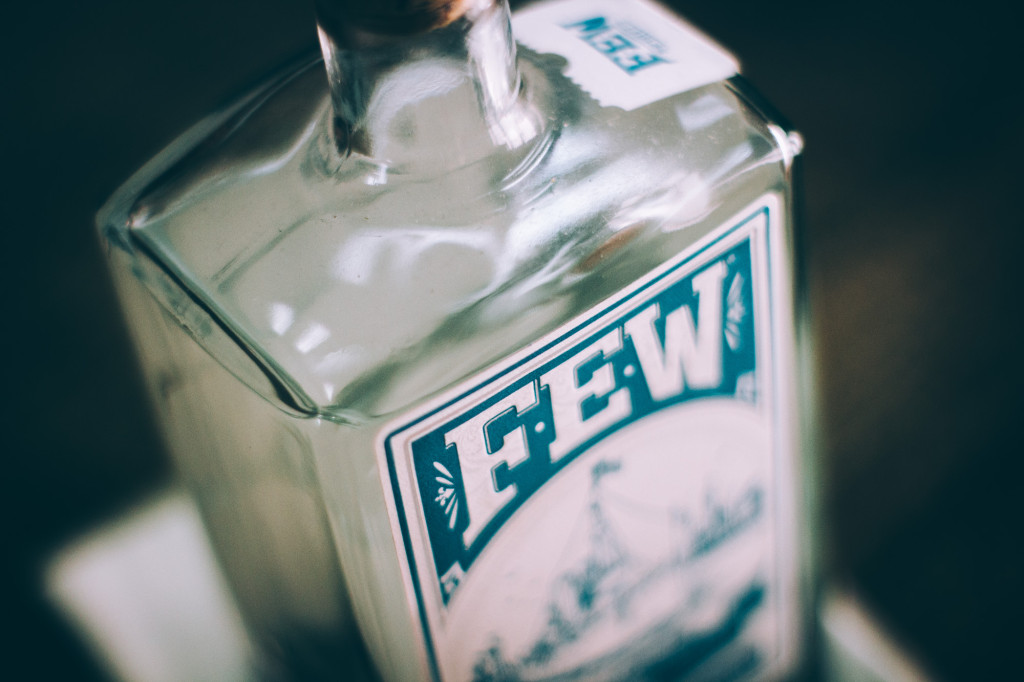
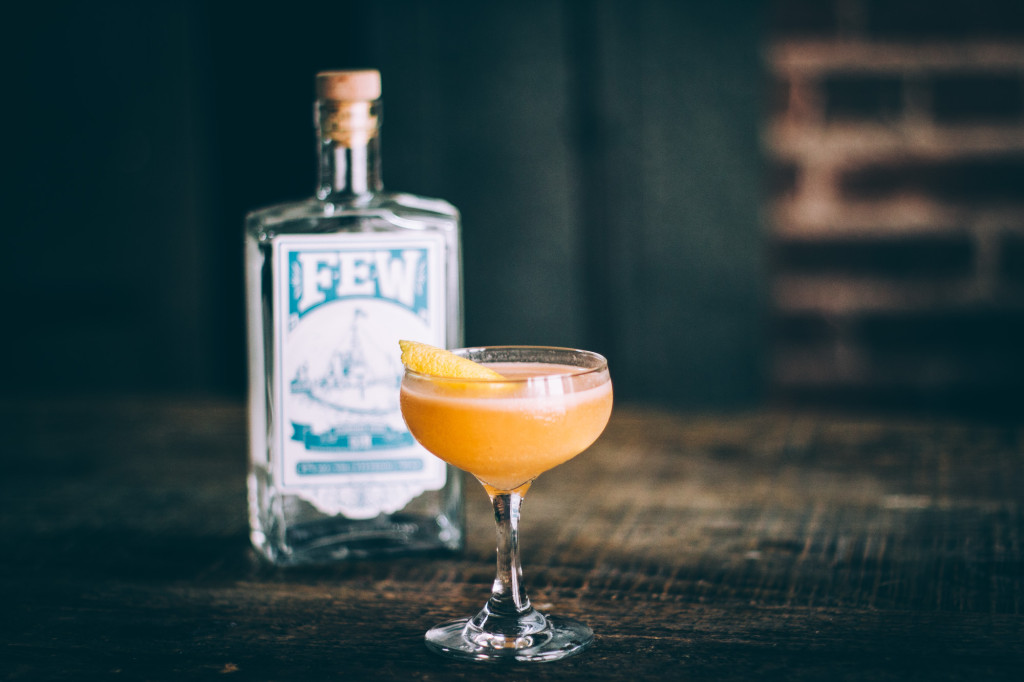
When you opened your distillery, did you anticipate having to go through all these legal hoops and create new laws in town?
Before I started, I knew what I was getting into. One of the things early on was to go to the city. With everyone I talked to I said, “Here’s what I want to do. Do me a favor and tell me no.” “No” is a perfectly fine answer. And it worked out really well for me because they said “yes” and really meant it.
I had to do a lot of work, and it certainly wasn’t easy. But I couldn’t have done it without all the help from the city and the community. They very much circled around me to help me out. It’s been really, really cool.
For example, I lost track of how many city hearings I had gone to after 15. At not one of those meetings did anyone vote “no.” It was always unanimous in my favor. The typical comment was, “I’m voting yes, but holy cow! This is really cool! Are you really doing this? Tell me more!” People were really excited.
Are there any other distilleries in your area?
We were the third of our size to open in the state. Now we’re up to 20 or 25. There are a lot of people who think liquor is easy. But they’re flat wrong. Hopefully it’s easier for them than it is for me.
It might be. You were a forerunner in getting everything approved.
We’ve done our fair share of work, but it’s the liquid in the glass that matters.
I’m a big whiskey fan. Could you walk me through the process of what your day-to-day looks like when coming up with a new whiskey?
We primarily decide what we want it to taste like. Do we want it to be fruity? Spicy? Sweet? Peppery? Smoky? Salty? When you know what you want it to taste like, the recipe will write itself. Then you can tweak various aspects to optimize exactly what you want. But you have to start off somewhere.
To do that, we have a lot of tools at our disposal. Since we are a distillery that actually makes product, we can use different cask fills, we can use different yeast, we can ferment it at a different temperature, we can take it off the still at a different proof. If it’s a whiskey, we can put it into the barrel at a higher or lower proof. We can use different wood. We can use different aging techniques. When you’re making new whiskey, there are an absurd number of traces you can make because you have all these amazing tools. What we do is we use all of our ingredients and all our equipment to get where we’re going to go.
What was your first batch like when you opened FEW Spirits?
One of the skills I bring to the table is I’m a former engineer as well. Having a good understanding of science, technology and the tools available was extremely helpful. A few months after we opened, one of our un-aged whiskies won a Double Gold Medal. It’s the best white whiskey in the world. It is highly advantageous to have a little bit of skill.
Being a creative person and coming from a law background, what do you think the best part of being an entrepreneur is?
Not having a boss. I’ve got a strong problem with authority—always have. It’s a personal weakness, but it is what it is. When I sit back and look at what FEW Spirits is, what is has become, and what it’s going to be, the team we’ve put together is fantastic. But FEW would not exist but for a singular vision. And that’s kind of fun. At night when everyone else has gone home, I can sit in the distillery and it’s a really cool feeling.
Now I go into bars all over the country and all over the world and there’s a bottle of mine on the shelf. I might have never been on that continent before and there it is. It’s like when I was a guitar player and I heard myself on the radio for the first time. You’re becoming a part of people’s lives.
We were a relatively new distillery, and the rye whiskey hadn’t started to have the acclaim it has today. I was in London talking to this guy. He came up to me and was like, “Can I tell you a story? Twenty years ago my father and I had a falling out. It doesn’t matter what happened, but we didn’t talk to each other for 20 years. Then I tasted your rye whiskey. For whatever reason, it made me think of my father, and I thought he would enjoy it. So I called him up. ‘I’ve got this bottle of whiskey. I think you might like it.’”
Next week he was reunited with his father after 20 years and they shared a drink. And that’s what life is about: family. I think it’s really cool that my whiskey played whatever role in getting a father and son back together again. I don’t think I’ll ever top that for a story. It’s amazing.





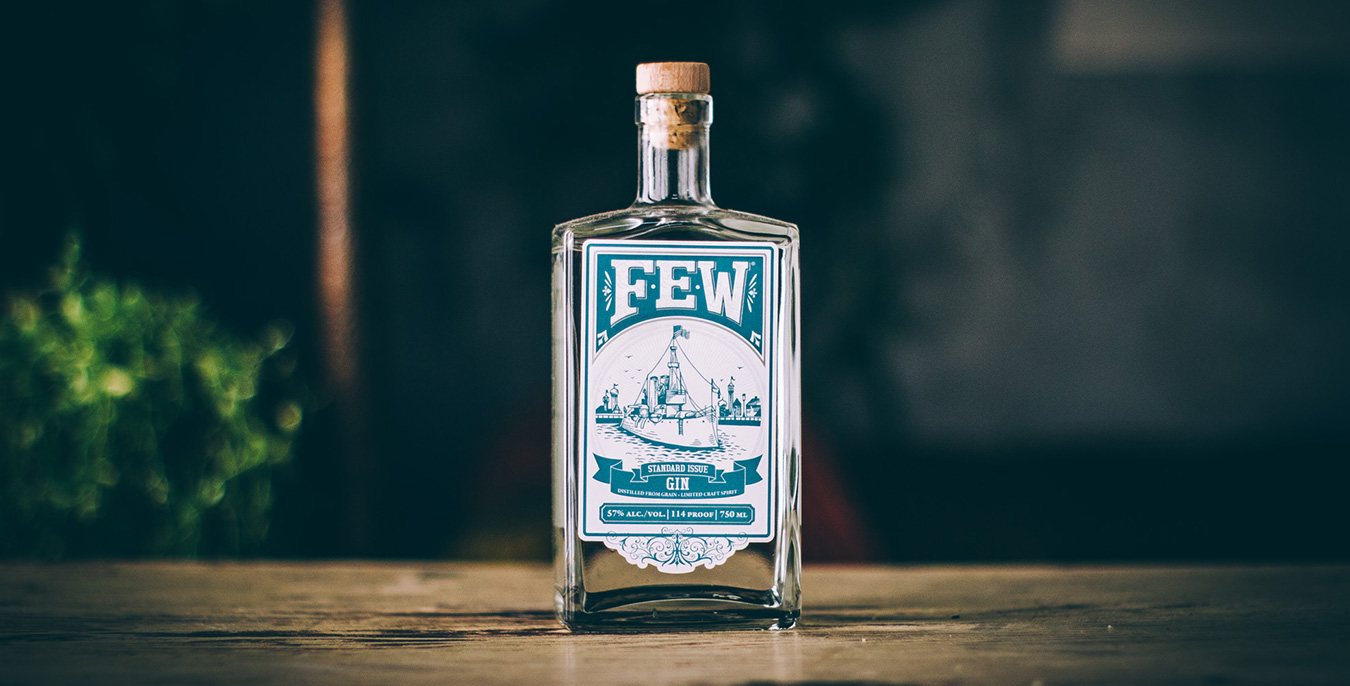

Our comments section is for members only.
Join today to gain exclusive access.